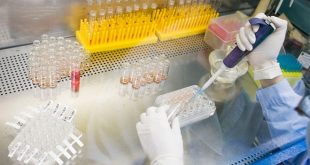Why despite the ubiquitous presence of allergens, not all people have allergies? It is noted that diseases such as allergic rhinitis and allergic conjunctivitis, allergic bronchial asthma, so-called Atopic Dermatitis they are all commonly found among close relatives of patients with allergic disease. The likelihood that children of such parents suffer from allergies is about 30 percent. If both parents have allergies, it is already at 60% percent possibility that their kids will also sick of them.
Atopy is the term that gives summarizing name of such “strange diseases” for which there is a family predisposition. Atopy is a condition in which there is a hereditary genetic predisposition to allergies at the expense of a more pronounced ability to form IgE antibodies than in other people. IgE antibodies are immunoglobulins that are responsible for the development of allergic reactions. When a person is healthy the amount of this immunoglobulins in blood is very low. Upon receipt of allergen in the body, some people begin intensive formation of IgE antibodies directed against a given allergen. Specific characteristic of IgE is that it tightly joins with the surface of certain cells – mast cells located in all organs and tissues and basophilic leukocytes, circulating in the blood. Thus these cells receive unique tool to recognition precisely this allergen that caused the formation of IgE antibodies. Armed with this tool cells are prepared for a meeting with the allergen, while the organism acquires a specific sensitization to an allergen and if implemented consecutive meeting of the body with the allergen, it causes a chain of subsequent allergic reactions.
It is more likely, that the ability of formation of IgE antibodies is not the only form of predisposition to allergy. Observations suggest that the reason may be for example greater activity of cells involved in allergic process with higher sensitivity of tissues etc., but still within the family of the hereditary factors.
This indicates that in all allergies is no inherited a specific disease and increased sensitivity to a specific allergen, but some mechanisms mitigating or enhancing the formation and expression of the allergic response. If these mechanisms prove sufficient in meeting with allergens, the person forms an allergy. Its specific location and degree of manifestation depends on the characteristics of the organism and the effects of environmental factors.
In recent years, the environment factors are becoming the main factors in formation of allergies in people. Allergic diseases are becoming the most important medical and social issue of our time.
Why is that?
Firstly, there are important steadily increasing number of new products with allergenic properties, which we have not encountered before.
Secondly, today there are factors that makes it easier to get sick of some allergy, altough this factors are not direct allergens. These are well-known factors such as high levels of SO2, NO2 in the atmosphere associated with pollution of the environment with products from the production activity of people, cigarette smoke, gases from burning internal combustion engines and more. Such factors substantially potentiate allergic reactions.
 Happy at Home Family Problems & Solutions | Home & Health Tips
Happy at Home Family Problems & Solutions | Home & Health Tips








